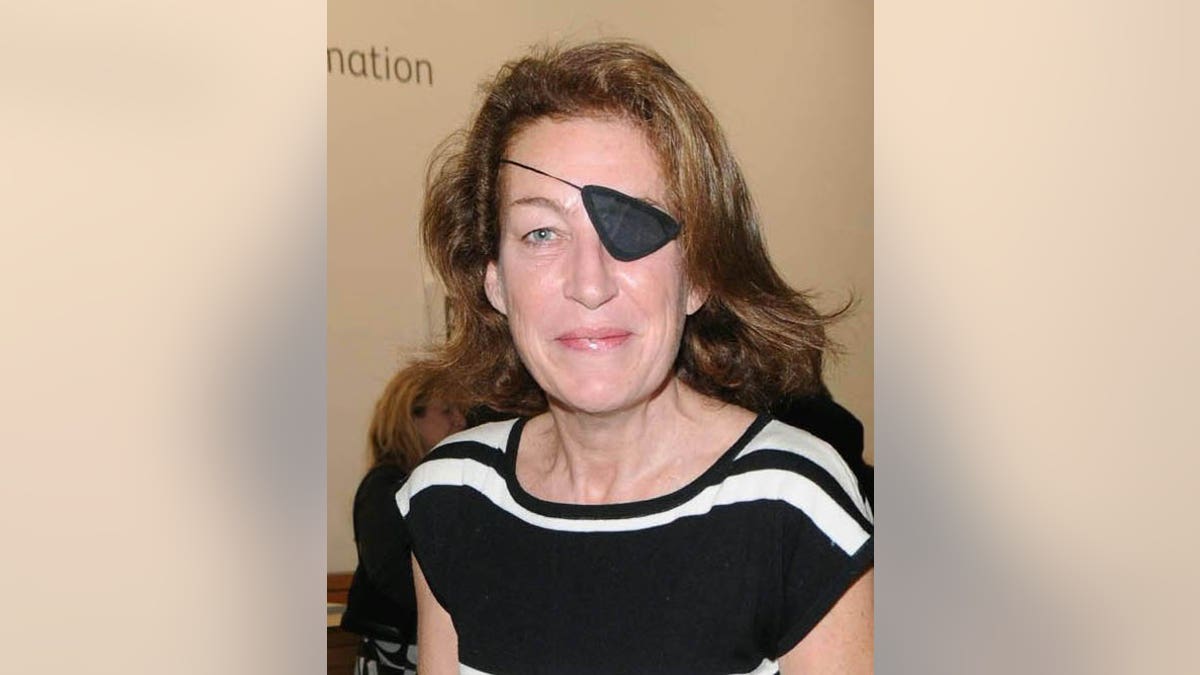
March 11, 2008: Journalist Marie Colvin is seen in London. A French government spokeswoman on Wednesday Feb. 22, 2012 identified two Western reporters killed in Syria as American war reporter Marie Colvin and French photojournalist Remi Ochlik. (AP2012)
Marie Colvin’s last email to me sought some advice: should she return to Libya or wait for the Syrian visa that the ambassador in London was promising her?
I emailed back: “Go to Syria…more at stake there now, or maybe not.” I stare at that message in horror now.
It was to be my last electronic conversation with my fearless, faithful friend, my companion throughout many a Middle Eastern crisis.
We had met in Paris in 1986 when she was UPI’s bureau chief. She was bored, she confessed. There was no “story” in France.
We last covered the joys of the liberation of Egypt at the room we shared at the Semiramis Hotel overlooking Tahrir Square in February 2011.
“Did you ever think you would see this day?” she exclaimed over one too many scotches in our cramped room, littered with home-made Egyptian flags, liberation posters, newspapers in several languages and chargers for cellphones from a dozen different dangerous assignments.
Unlike me, who had grown complacent covering eternally passive Egypt, Marie always believed that such a day would come. She had faith -- a deep-seated, Catholic conviction -- that the oppressed everywhere would one day rise up, demanding freedom and dignity. She did more than hope. She traveled relentlessly. And she wrote -- about oppression, and resistance, about evil and fear. What kept her going was the hope that one day, things would change. They had to, she told me.
She annoyed her anti-war friends by continuing to defend America’s war in Iraq. “We’ve gotten rid of him!” she would say repeatedly, unwilling to utter Saddam Hussein’s name. “The people of Iraq now have a chance to live decent lives.” She trusted Iraqis. With some luck, she would say, they might live in a free, prosperous country.
When she lost an eye covering militants in Sri Lanka back in 2001, I finally thought that her adventurous assignments were over. I was wrong, of course.
Marie got a glass eye, a black eye patch, a few more awards, a little rest, and then raced back to the fray, reporting from places for The London Sunday Times that many of us feared to go.
People adored her, even some of the autocrats she excoriated in print. “Your friend, Marie,” Muammar Qaddafi inquired during an interview back in the late '80s. “Where is she? When will she return to Libya? I miss her!” He had left out a little white dress and green shoes for her to wear during an interview one night. She had written about that too. Eventually, State Department spokeswoman Margaret Tutwiler and NSC adviser Condi Rice would replace her as objects of his infatuation.
She did return to Libya, of course, to cover the uprising against him, getting an interview with him and hanging out with Saif al-Islam, his now imprisoned son, and then reporting on the rebels in Benghazi, in Misrata.
Between dangerous assignments, she sailed. Well, normal people sail. Marie raced. She loved sailing almost more than life itself. She said it helped her recharge.
We talked earlier last winter about going to Libya together. But I reneged: I had a husband and a dog to think about, I told her. We vowed to meet back in Cairo during the next crisis that I could safely cover.
I cannot bring myself to read the details of how she died in Homs. But Richard Engel tweeted some of her last words, a conversation she had with the BBC as she was seeking shelter in a house in Baba Amr: “The sickening thing is the complete merciless nature…they are hitting civilian buildings absolutely mercilessly, without caring. The scale of it is just shocking.”
Marie Colvin cared. She never lost her capacity for outrage. The Middle East and journalism will be sadder now without her voice. But she would chide me and all her colleagues for grieving. “Jude,” she would say, “stop crying and get on a plane. You should be here.”
Marie Colvin died as she lived -- with courage and compassion. Sail on, my friend.
Judith Miller, a Fox News contributor, is an award-winning writer and author.








































